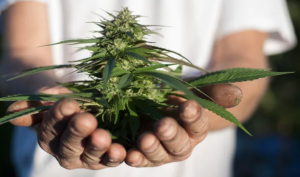A marijuana or weed hangover is a set of symptoms commonly experienced the day after consuming too much cannabis. But what causes these hangovers, and how can they be combated?
In this post we’re delving into the science behind weed hangovers, shedding light on why they happen and offering tactical strategies to mitigate their unwanted effects.
Whether you’re a seasoned cannabis user or a curious novice, understanding the facts about weed hangovers can empower you to make more informed decisions about your cannabis consumption.
Weed Hangover Quick Facts
- Weed hangovers can occur the day after consuming large amounts of cannabis, often characterized by symptoms like fatigue, dehydration, anxiety, and decreased appetite.
- Overconsumption of cannabis can overload the body’s cannabinoid receptors, leading to the hangover-like effects.
- Unlike alcohol hangovers, weed hangovers are not caused by the main active ingredient (THC) but rather by other compounds in the cannabis plant, such as terpenes and flavonoids.
- Some individuals may experience an allergic reaction to cannabis, which can also result in hangover-like symptoms.
- Maintaining hydration, getting sufficient rest, and eating a balanced meal are effective ways to combat the symptoms of a weed hangover.
- Certain supplements, including omega-3 fatty acids, omega-6 fatty acids, magnesium, and vitamins, can help lessen the severity of weed hangovers.
- Overconsumption is the primary cause of weed hangovers. Therefore, practicing moderation in cannabis use is the best prevention strategy.
A Deep Dive into Weed Hangovers
With those quick facts in mind, let’s dive into more on what weed hangovers are and how they can affect a person’s experience when consuming cannabis.
Understanding Weed Hangovers
The most common symptom of a weed hangover is an intense feeling of fatigue.
Other symptoms may include dehydration, headache, increased anxiety, decreased appetite and difficulty concentrating.
Research has shown that when one consumes too much cannabis, the body’s cannabinoid receptors are overloaded and can become unresponsive to THC’s effects. This is what causes the uncomfortable hangover-like effects.
Remember that weed hangovers are not caused by THC itself, but by the
presence of other compounds in cannabis.
For instance, terpenes and flavonoids can produce mild intoxicating effects, which can contribute to a weed hangover.
Additionally, some people may experience an allergic reaction from cannabis, and this too can result in uncomfortable hangover-like symptoms.
Combatting Weed Hangovers
The best way to avoid a weed hangover is to practice moderation and consume cannabis responsibly.
If you do experience a weed hangover, the most effective way to combat it is through hydration and rest.
Drinking plenty of water helps replenish fluids lost from dehydration, and getting an adequate amount of sleep can help restore energy levels.
Additionally, taking other steps such as eating a balanced meal and avoiding coffee can help minimize the effects of a weed hangover.
There is also evidence to suggest that certain supplements may be helpful for combating the symptoms of a weed hangover.
For instance, one study found that taking omega-3 fatty acids before and after consuming cannabis helps reduce inflammation in the body, which can help lessen the severity of a weed hangover.
Other supplements that have been found to be beneficial include omega-6 fatty acids and magnesium.
While some may experience more intense hangover-like symptoms than others, everyone should take steps to practice moderation and consume cannabis responsibly.
By doing so, you can enjoy the benefits of cannabis without having to suffer through an uncomfortable weed hangover afterwards.
Weed Hangover Treatment Options
Although the best way to avoid a weed hangover is by avoiding overconsumption in the first place, there are also some treatment options available for those who do experience intense symptoms.
Certain medications can be taken to reduce inflammation and nausea, while other natural remedies such as herbal teas may help relieve stress and anxiety associated with a weed hangover.
Incorporating healthy lifestyle habits such as exercise and yoga can help to strengthen the body’s immune system, reducing the severity of weed hangover symptoms. You might also consider keeping this on hand.
Conclusion
While it is important to practice moderation when consuming cannabis, it is also important to understand the facts about weed hangovers.
By understanding what causes them and how to combat their effects, you can enjoy the benefits of cannabis without having to suffer through an uncomfortable weed hangover afterwards.
Incorporating certain supplements such as omega-3 fatty acids and other healthy lifestyle habits such as exercise and yoga can help strengthen the body’s immune system, reducing the severity of weed hangover symptoms.
With this knowledge in hand, you will be better equipped to make more informed decisions about your cannabis consumption.





